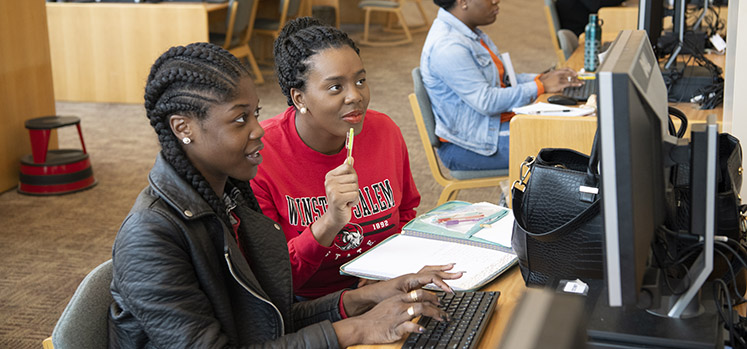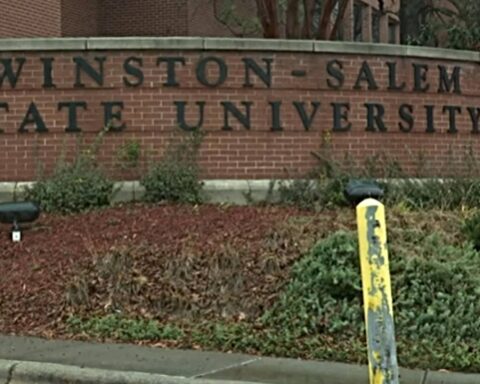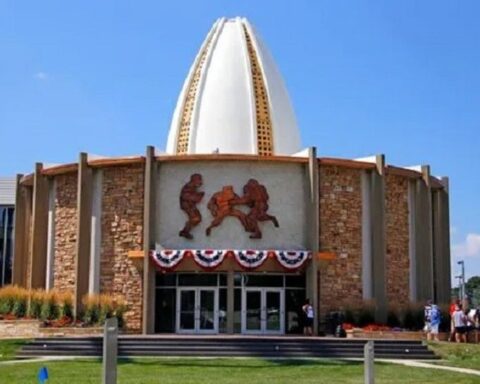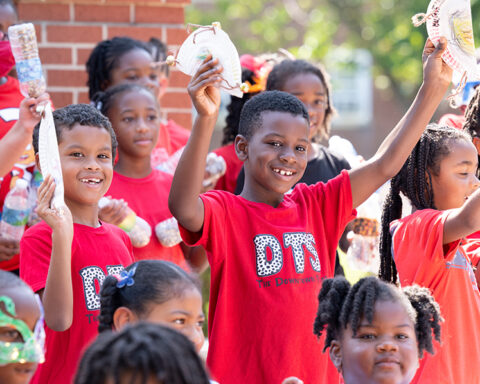By Winston-Salem State University newsroom,
Back in the fall of 2019, LaMonica Sloan Wilhelmi and senior staff members at Winston-Salem State University were brainstorming, searching for ideas to help provide more career development options for students.
The innovative ideas from that session laid the groundwork for what turned into a $1.2 million Job Corps Scholars Program on the WSSU campus that will provide intensive two-year career preparation for 40 community members a year.
“This got started during one of our senior staff meetings in September of 2019,” said Wilhelmi, the associate vice-chancellor and dean of students at WSSU. “The conversation was how to provide additional career development to our students, how to engage and enroll students, how to prepare for the job search. This conversation morphed into providing career counseling and employment services for those in our community.”
One of those senior staffers, Dr. Erin Lynch, the associate provost of scholarship, research, and innovation, suggested searching for grants. The group gathered again a week later, and the Job Corps Scholars Program began to gain momentum.
Wilhelmi and her team went to work researching and writing an application for a Job Corps Scholars Program grant that would allow them to impact the area by reaching individuals who have a high level of need in preparing for the job market. They were very targeted in their approach to make sure they focused on areas where the income level met the Job Corps requirements.
Their hard work and diligence paid off with the $1,186,900 U.S. Department of Labor Job Corps Scholars grant.
The grant allowed for the hiring of four counselors, two personal and career counselors, and two employment counselors who will aid the students with personal and professional development.
The program will center around five counties: Forsyth, Davidson, Davie, Guilford, and Wake, counties that rank among the lowest in the state for per capita income. They are also among the weakest areas in the state for upward economic mobility.
When enrollment in the first cohort begins this summer, students “will start with traditional orientation as a Winston-Salem State University four-year student,” said Shanika Gray, personal and career development counselor.
“In the first year, we will work on personal barriers that may be affecting their life: childcare, housing, food, and security, any of those barriers that might be a problem. There are classes both online and in-person for what it looks like as a student beginning at the college level.”
The second year, Gray said, becomes more targeted.
“We apply things in the second year, understand the importance of things like a resume, interview skills for a two-year and then a four-year school or to prepare to enter the military,” Gray said.
The program is for those between the ages of 16 and 24 who meet the standard for low income as set by the government. More than 90 people have expressed interest in the program, which is currently in the eligibility phase.
Nichelle Carroll, a personal and career counselor in the program, said they have worked hard to reach those who could benefit most from the program.
“We have been able to connect with community partners, awesome various agencies, to streamline and create a pipeline to the community and those who have a need,” said Carroll.
Wilhelmi praises the group that put this project together and continues to push it forward.
“I applaud this team. They have been really innovative on how we got to where we are, determining who the major stakeholders are, the value of our stakeholders,” said Wilhelmi. “This is a non-traditional program and our ask now is that the community rallies around this program.”





